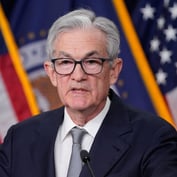(Bloomberg) — Congress’s plan to throw a lifeline to Puerto Rico is making waves in the U.S. Virgin Islands.
See also: HHS exempts territories from many PPACA rules
The measure that passed a House committee last week would allow for a federal control board to oversee the finances — and potentially restructure the debt — of any U.S. territory, even though Puerto Rico is the only one now asking for help. Virgin Islands Gov. Kenneth Mapp and Rep. Stacey Plaskett have blasted the bill, warning that it may tarnish its standing with investors. That concern is already starting to materialize: Returns on its securities are trailing the $3.7 trillion municipal market for the first time since 2011.
The Caribbean island, Puerto Rico’s closest American neighbor, has a sliver of the population — about 104,300 — and a fraction of the debt, with $2.4 billion across all issuers. But divvied up, that’s $23,000 of obligations per person, even more than Puerto Rico’s $20,000. The two Caribbean territories with a shared culture also have similar fiscal strains: declining populations, underfunded pensions, histories of borrowing to cover budget shortfalls and unemployment rates that are twice as high as the U.S. mainland’s.
“It’s the same template: Over a period of years, you keep issuing debt to cover your operating deficits, your economy isn’t growing, your population isn’t growing, but your liabilities keep growing,” said David Ashley, an associate portfolio manager at Thornburg Investment Management, which holds $11.5 billion in municipal bonds. “Just by virtue of math, your per-capita debt just continues to rise, probably to an unsustainable level at a certain point.”
Territory bonds have long lured buyers across the U.S. because the interest on the securities isn’t taxed at the federal, state or local level. And unlike some American local governments, the territories — -American Samoa, Guam, Northern Mariana Islands, Puerto Rico and the U.S. Virgin Islands — can’t file for bankruptcy. That made investors confident they’d be paid back, a faith that was lost as Puerto Rico defaulted and Congress advanced legislation providing a way for distressed territories to reduce their debts in court if needed.
Virgin Islands leaders insist the government can and will pay what it owes, in part because of the way the bonds are structured. Many securities are backed by specific revenue streams, like excise taxes tied to rum production by Diageo PLC and Cruzan International Inc., that go straight from the U.S. Treasury to an escrow agent. Even bonds backed by gross receipt taxes, which offering documents say are “secured by its full faith and credit and taxing power,” also give the trustee a lien on the levies.
Virgin Islands officials say they’ve had to borrow to make up for discrepancies in how the federal government funds territories relative to states. They’ve called on Congress to extend tax credits for low-income workers to their residents and bolster Medicare and Medicaid payments as well. None of that was included in the Puerto Rico bill.
Disadvantaged start
“Congress has passed the buck and hasn’t done what they needed to do for many years,” Plaskett, the Virgin Islands’s non-voting representative in Washington, said in a telephone interview. “We’re already operating at a disadvantage to the other states, and have had to utilize other monies, such as bonds, to pay for everyday expenses that the people of the territories need.”
In a year when municipal-bond investors can’t get enough high-yielding bonds, the Virgin Islands are an exception. The territory’s debt has gained 2.2 percent so far in 2016, compared with 2.8 percent for all municipal securities, S&P Dow Jones Indices data show. It would be the first time since 2011 its obligations have trailed the market.
Its securities are mostly in the lowest investment-grade tier, unlike Puerto Rico’s, which are deemed virtually certain to default. If the Virgin Islands issued pure general obligations, however, Fitch Ratings says it would rate them BB-, the third-highest junk rank.








 May 31, 2016 at 07:54 AM
May 31, 2016 at 07:54 AM










